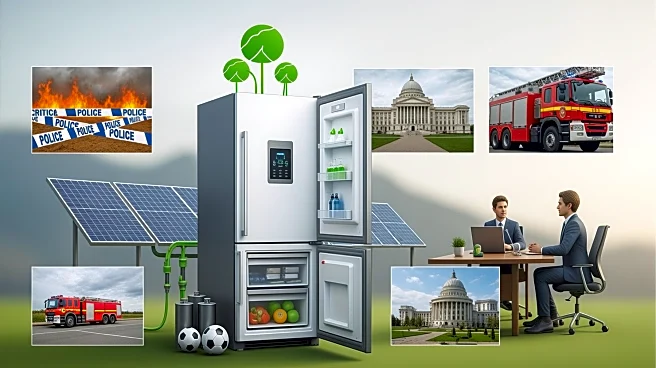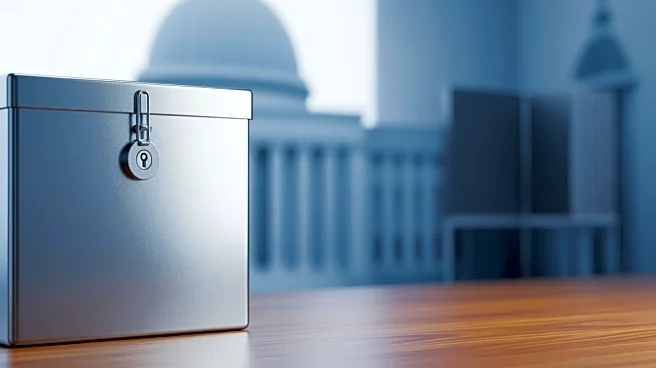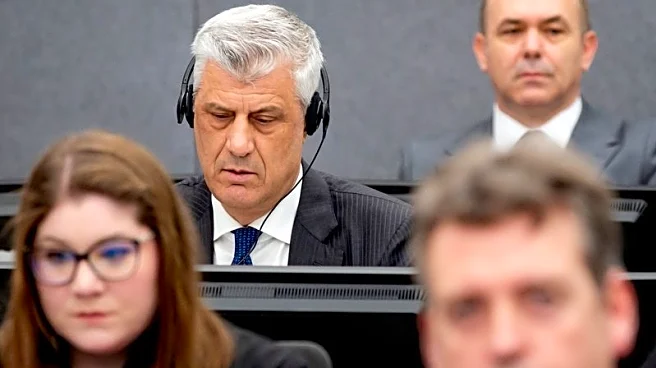What's Happening?
Noble Foods, a U.K.-based company known for its Happy Eggs brand, has introduced 40 Sunswap Endurance zero-emission transport refrigeration units across its national routes. This initiative is part of the company's strategy to reduce CO2 emissions while
ensuring temperature control during transport. The Endurance units primarily derive their cooling power from integrated roof-mounted solar panels, supplemented by grid electricity during loading and unloading. The units have undergone nine days of testing on rural routes, achieving 100% reliability and completing eight delivery cycles without any operational disruptions. By replacing traditional diesel-powered refrigeration, Noble Foods anticipates a reduction in fleet emissions by up to 3,439 tons over the units' lifetime, alongside operational savings of approximately $1.5 million.
Why It's Important?
The adoption of solar and battery-powered refrigeration units by Noble Foods represents a significant step towards sustainable transport solutions in the food industry. This move not only aligns with global efforts to reduce carbon footprints but also demonstrates the potential for renewable energy technologies to maintain operational efficiency and product quality. The environmental benefits are substantial, with a projected reduction in emissions and significant cost savings. This initiative supports Noble Foods' sustainability objectives and enhances the green credentials of consumer-facing brands like Happy Eggs, potentially influencing other companies to adopt similar technologies.
What's Next?
Noble Foods' successful implementation of the Sunswap Endurance units may encourage further adoption of renewable energy technologies in the transport sector. As the company continues to monitor the performance and benefits of these units, it may expand their use across more routes. Additionally, the positive outcomes could prompt other companies in the food and logistics industries to explore similar sustainable solutions, contributing to broader industry shifts towards net-zero emissions.
Beyond the Headlines
The integration of solar and battery-powered refrigeration units highlights the growing importance of sustainable practices in the logistics and food industries. This development could lead to increased investment in renewable energy technologies and innovation in transport solutions. Furthermore, it underscores the role of corporate responsibility in addressing climate change and the potential for businesses to drive environmental progress through strategic partnerships and technology adoption.

















